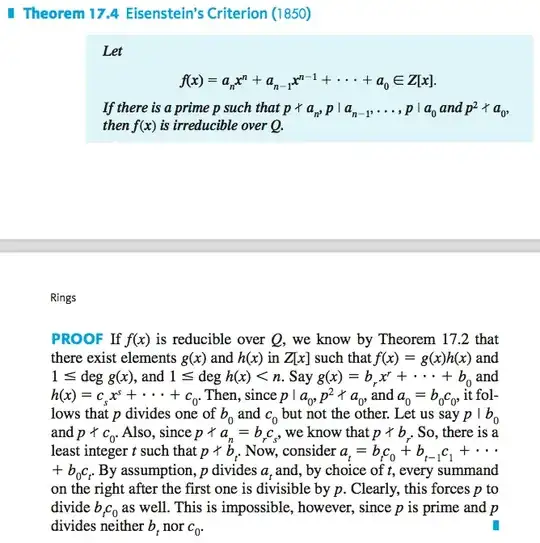I'd like to find a proof (as simple as possible) of Eisenstein's criterion of irreducibility. I found here the proof in the picture below. This is rather elegant, yet I do not understand why $g,h$ must have integer coefficients.
Edit:
I found this paper, stating
If a polynomial with integer coefficients is reducible over Q, then it is reducible over Z.
A proof of this is not given though
